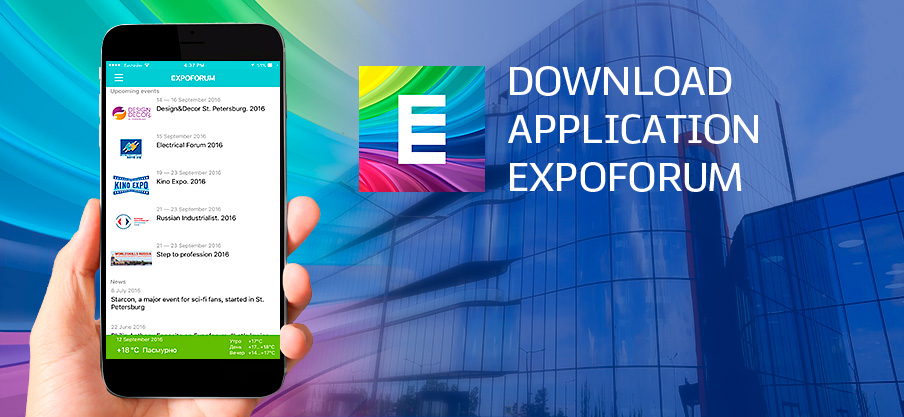Russia and Germany: Technological Partnership in shipbuilding
The online conference on “Russia and Germany: technological partnership in the field of shipbuilding” was hold on February, 1st. The event was organized by The Russian-German Chamber of Commerce in cooperation with NEVA-International LLC with the support of the Department of Shipyard and Offshore Equipment of the German Mechanical Engineering Industry Association (VDMA). The invited experts have highlighted various aspects of interaction between the representatives of the maritime industry of Russia and Germany, and also outlined the way to further strengthen business ties.
In Russia there are about 500 shipbuilding enterprises, of which 180 are shipyards, the rest produce ship equipment and provide services. Regarding to the data given by Vladimir Nikitenko, the director of the North-West branch of the Russian-German ECP, deputy chairman of the German Economy in the Russian Federation, more than 60% of Russia’s foreign trade is in naval transport. The new opportunities are opening up in the spotlight on Northern-Sea-route development. So, prior to 2024, the goal is to increase the traffic volume along the North Sea Route to 80 million tons. Russia plans to attract foreign partners into infrastructure construction, environmental protection in the Arctic, etc.
Hauke Schlegel, the Head of the Marine and Offshore Equipment Division of the VDMA, gave an overview on the shipbuilding industry status in Germany. The VDMA comprises more than 3 thousands companies, of which 250 are in charge of shipbuilders and component suppliers. In total, there are about 400 suppliers of ship equipment working in Germany, including small businesses, which are over 2 thousands. And regarding to this position, the country holds the World leading position.
Among the key trends that have an impact on the German shipbuilding market, Mr. Schlegel named the increased requirements for the product reliability and safety, active implementation of digital technologies and optimization of costs while maintaining high quality. “These trends have shaped the need to supply complex systems, not the individual components. Today it is necessary to consider the entire life cycle of a vessel: from launching to disposal. And in this regard, the role of cooperation and interaction, including with foreign partners is increasing, he emphasized.
For Russia, Germany has been and still remains one of the most important trading partners, although the world trade volume has dropped due to the pandemic, and has also affected the Russian-German relations. According to Ilya Pomylev, the head of the Civil and Marine Technology division, department of the shipbuilding industry and marine technology of the Ministry of Industry and Trade of The Russian Federation, the unconditional points of the further growth of Russian-German trade are non-resource exports and deep industrial cooperation, including the shipbuilding field.
Dmitry Stoyanov, Director of the Localization Center of the Central Research Institute Kurs JSC, presented the participants of the online conference with another large Russian Project – the Zvezda shipbuilding complex in the Primorsky Territory. This is the first large-scale shipyard in Russia, which capable of meeting the Russian customers’ needs in marine equipment construction to ensure the natural resource extraction on the country’s continental shelf. Zvezda’s confirmed booking numbered 120 vessels, including 15 gas carriers that have not been built in Russia before. A techno park is under construction in the immediate proximity of the new shipyard, where entrepreneurs interested in collaboration are invited.
Moreover, Mr. Stoyanov has focused the attention of his colleagues on the regulatory framework for the production localization in Russia. Currently, at the final step approval by the Russian Government there is a new version of the decree, which sets the localization level for 75 types of ships, as well as requirements for technological operations, materials, etc. “Each position will be assigned a certain number of points” – he mentioned – To build a ship in Russia and it was considered Russian, it supposed to gain a certain number of points: by 2023 – 2,400 points, and later ever more. In this regard, the demand for Russian-made components will increase, and direct supplies from abroad will be decreased to be less in demand, since they would not be credited with points. Thus, the entrepreneurs who wants to maintain their presence or increase their share in Russia: just only one way out – the production localization in Russia. “The research carried out by the Central Research Institute “Kurs” displayed that in Russia the most demanded special equipment for gas carriers (compressors, pumps, valves for LNG), as well as general equipment: cranes, winches, and the most scarce items are engines and diesel generators. In all these areas, Russia is ready for cooperation.
The enormous opportunities for establishing and strengthening business ties are provided by the international exhibition and conference “NEVA”, which will be held on September 21st-24th, 2021 in St. Petersburg. “We expect the participation of more than 600 Russian and foreign entrepreneurs, as well as representatives from professional associations and the government sectors”, said Alexander Ulyanov, General Director of NEVA-International LLC.- At the moment, more than 85% of the exhibition space has already been reserved. At the same time, the entrepreneurs significantly increased the exposition area in comparison with the previous exhibitions. The share of unique new exhibitors has grown this year. For now, seven national pavilions have already been confirmed, and five more national pavilions are at the approval step.
According to Mr. Schlegel, working in the national pavilion form brings the maximum effect, especially for newcomers who are just getting familiarized with the Russian market. German enterprises are showing great interest in participating in NEVA and pin great wishes on generative cooperation with Russian business.
At the session devoted to the technological partnership and localization, Sergey Volkov, the executive director of the Association “Cluster of ship equipment manufactures and shipbuilding entrepreneurs”, stated about the industry potential of the Leningrad region and touched upon the main difficulties that foreign companies face when entering the Russian Market. From his point of view, the great prospects for international cooperation are laid in the use of hydrogen as an alternative marine fuel.
Mikhail Rudenko, Chief Designer of the Nevskoye Design Bureau, presented the project of Albatross research vessel for the Arctic and Antarctic, which is being developed cooperatively with the Admiralty Shipyards, where it is planned to be built, and the institute of the Arctic and Antarctic, which is going to operate it. The new vessel combines a set of functions – passenger, research, tanker, dry cargo ship, container ship, helicopter carriers and ice-breaker. The construction of such vessels is a global trend, while the Russian model will become the largest in the world by dimensions and will have an export potential. The construction process will require modern high-ice grade components for use in an extremely low temperature.
The General Director of the Mecklenburg Foundry, Dr. Lars Geitsch, introduced his colleagues to modern techniques for special shipbuilding casting, and shared his experience in digitalizing the process of testing screw equipment, using 3D modelling and additive manufacturing.
The past online conference “Russia and Germany: Technological Partnership in the shipbuilding” was held as a part of the international marine online conference program, which are held from November 2020 to May 2021 by Neva-International LLC, the organizer of the Neva exhibition and conference, in cooperation with the support of the Ministry of Industry and Trade and the Ministry of Foreign Affairs of Russia.
The record of the online conference “Russia and Germany: Technological Partnership in Shipbuilding” is available here.
A schedule of the upcoming events can be found here.
For participation in online conferences, please contact: Anna Guseva a.guseva@nevainter.com

 Calendar
Calendar
 Online application
Online application
 Map
Map
 How to get
How to get


